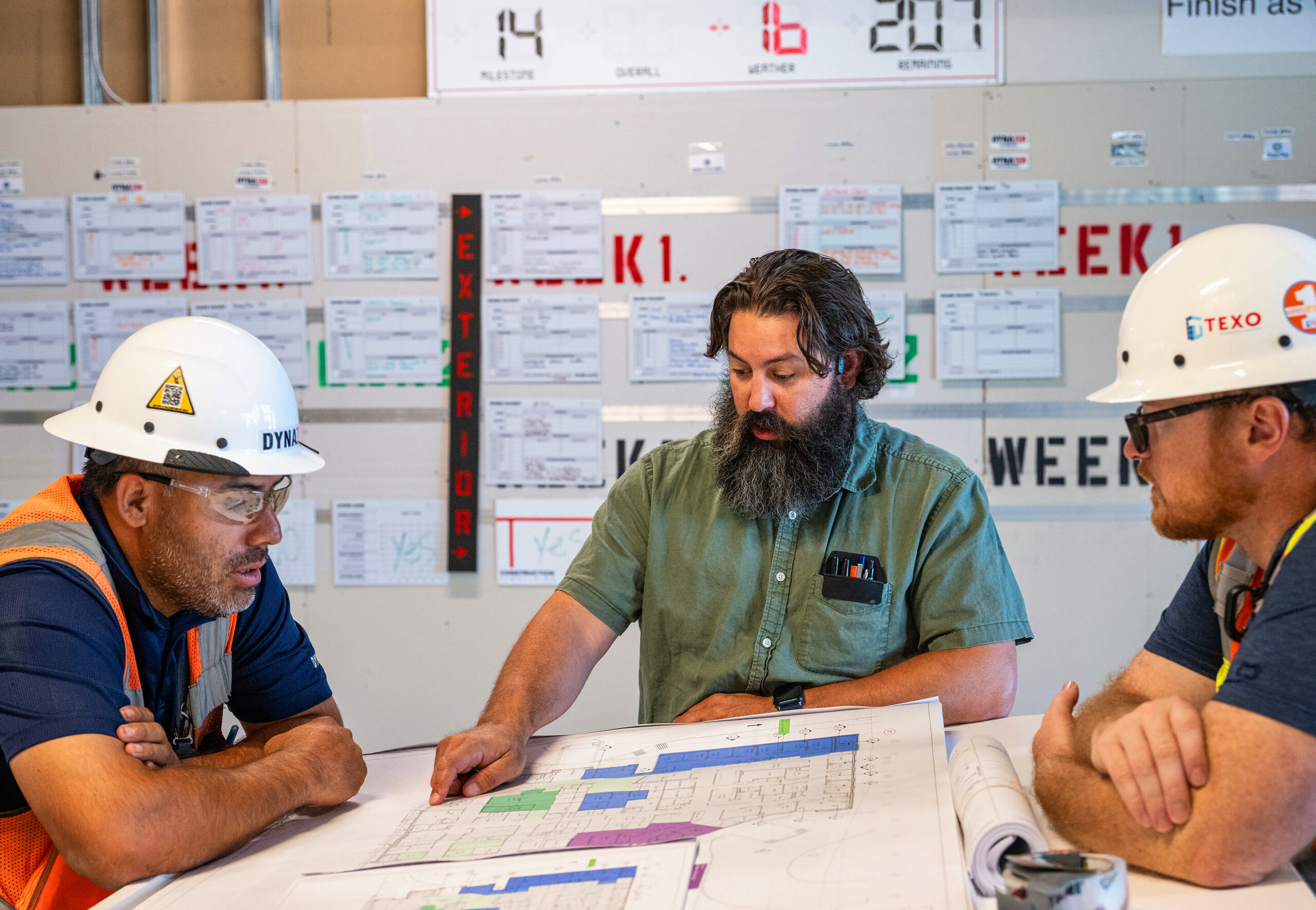Over the years, I’ve observed various project managers and superintendents in their roles, leading and overseeing projects and jobsites. I’ve come to recognize crucial traits that successful leaders and managers commonly possess—traits I consider integral for efficient and effective leadership.
Incorporating these skills into your professional development can serve as a catalyst, empowering you to navigate challenging decisions better, rally your team around shared goals more effectively, and guide them to shared success.
Transparency: Building Trust through Clarity
Transparency is the cornerstone of trust-building. Openly sharing the organization’s goals and challenges fosters employee understanding, helping them to see the significance of their contributions to the company’s success. From a corporate level, this would include sharing goals for the year, such as revenue, gross/net profit, overhead, sales metrics, and progress on strategic initiatives. On the jobsite, ensuring your entire project team understands the client’s goals and purpose is a significant first step. Internally, ensuring your team understands the contract and business plan allows everyone to work from the same common ground.
Encouraging Risk-Taking and Innovation
Embracing experimentation is pivotal to establishing and sustaining a competitive edge. Great leaders recognize this and actively encourage risk-taking and innovation within their teams. Creating an environment that values failure as a stepping stone to success emboldens employees to explore new ideas, fostering a culture that celebrates creativity. In an industry where the words “this is how we’ve always done it” are commonplace, think through how team members can be curious about their work. What new tools and technologies can they leverage? What further training or tactics will allow them to add more value to your work?
You won’t know if you don’t try new things.
Trust Building through Integrity, Accountability, and Caring:
Demonstrating integrity stands as one of the fundamental pillars of effective leadership. Balancing power with accountability differentiates successful leaders from the rest. Upholding high moral standards and fair treatment of employees builds trust within the team and sets a model for the entire organization. There are two basic types of trust that they excel at building:
- Applied Trust: Earned through diligence and commitment, applied trust is foundational in any setting. Those who consistently show up on time, invest genuine effort, and follow through on their commitments cultivate credibility within the team, cultivating an environment where colleagues rely on their competence and reliability. Leaders upheld by applied trust are the linchpin for a cohesive team, ensuring tasks are accomplished efficiently. Without applied trust, inefficiencies such as duplicated work, missed deadlines, and decreased productivity become prevalent.
- Emotional Trust: Beyond applied trust lies emotional trust, which is the assurance that someone supports you, respects your work, and values you. Emotional trust enables open and vulnerable communication, where thoughts and feelings are shared without reservation, fostering constructive conflict resolution during challenging times. This form of trust transcends the basic tenets of hard work, reliability, and commitment, necessitating a certain level of emotional intelligence from leaders.
Acting Decisively: Navigating the Unknown
On an active jobsite, quick, strategic decision-making is indispensable. Yet, decision-making isn’t an isolated event but an ongoing process. Leaders who act decisively, continuously evaluate, and pivot when necessary are better equipped to steer their teams through uncertainty. Lack of proactive communication can pave the way for severe repercussions on a jobsite. It can trigger critical jobsite accidents, necessitate extensive project rework, and present significant challenges regarding workforce management. When issues aren’t communicated beforehand, workers are deprived of the opportunity to take preemptive action. Similarly, promising to address concerns but failing to follow through may result in the team losing trust and confidence, leading them to disengage from seeking guidance or support.
Demonstrating Resilience: Weathering the Storm
Not every decision leads to success. Resilience in the face of failure is crucial for a leader. Resilient leaders continuously reassess their approach, maintain belief in the mission, and manage collective energies to navigate crises. Leaders on a jobsite must understand the four fundamental aspects of resiliency.
- Physical resilience is crucial for withstanding the job’s physical demands, recovering from physical strain, and enduring the challenges inherent in construction work.
- Mental resilience is essential for maintaining cognitive sharpness amid the job’s complexities and fostering innovative problem-solving abilities.
- Emotional resilience is vital in understanding and managing emotions amidst high-pressure situations, enabling leaders to make conscious, effective decisions.
- Social resilience is pivotal for effective collaboration and teamwork on the site, allowing leaders to work alongside others to overcome challenges and promote a resilient team dynamic.
These core traits and approaches equip construction field leaders to tackle challenges effectively, make pivotal decisions, and lead their teams to success amidst the ever-evolving demands of the jobsite.
This article was written for Constructor Magazine’s Mar/Apr 2024 issue; you can read it here:




